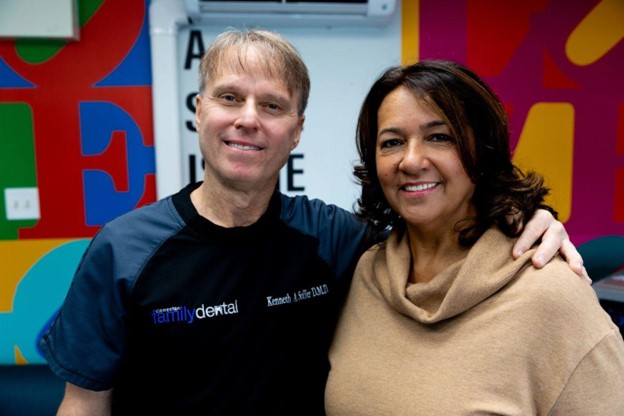On average, the cost for full-arch dental implants in the United States can range from $15,000 to $30,000 per arch, or up to $60,000 for the entire mouth. This cost typically includes the initial consultation, the surgery itself, any necessary follow-up appointments, and the final restoration (such as a fixed bridge). However, it's essential to setup a consultation to get an accurate estimate tailored to your specific needs and circumstances.
 When embarking on the journey to find a proficient Full Arch dentist, cost often emerges as a primary consideration for patients. However, I advocate for a comprehensive approach that transcends mere price comparison, as overlooking other crucial factors could potentially lead to long-term repercussions.
When embarking on the journey to find a proficient Full Arch dentist, cost often emerges as a primary consideration for patients. However, I advocate for a comprehensive approach that transcends mere price comparison, as overlooking other crucial factors could potentially lead to long-term repercussions.
Here are the steps I recommend for navigating the process of shopping for Full Arch Dental Implants and understanding the associated costs.
Research and Education:
Start by researching the basics of full arch dental implants. Understand what they are, how they work, and their benefits
Learn about the procedure itself, including the surgical process, recovery time, and potential risks.
Consultation with a Dental Professional:
Schedule consultations with qualified dental professionals who specialize in dental implants, specifically those who have experience in Full Arch Dentistry.
During the consultation, discuss your specific needs, concerns, and expectations regarding dental implants. The dentist will assess your oral health, bone structure, and overall suitability for the procedure.
Ask questions about the different implant options available, the expected outcomes, and the potential risks and complications.
Treatment Planning:
Based on the consultation, the dental professional will develop a personalized treatment plan tailored to your individual needs. This plan should outline the recommended type of implants, the number of implants needed, and any preparatory treatments required, such as bone grafting or tooth extractions.
Discuss the treatment plan in detail with the dental professional, including the timeline for the procedure, the expected recovery process, and any follow-up appointments.
Understanding Costs:
Dental implant costs can vary widely depending on various factors, including the type of implants, the number of implants needed, the complexity of the procedure, and the geographic location of the dental practice.
Ask for a detailed breakdown of the costs involved, including the cost of the implants themselves, any preparatory treatments, surgical fees, anesthesia fees, and post-operative care.
Inquire about financing options or payment plans available to help make the treatment more affordable.
Second Opinion:
If you're unsure about the treatment plan or the associated costs, consider seeking a second opinion from another qualified dental professional. This can help ensure that you fully understand your options and feel confident in your decision.
Insurance Coverage:
Check with your dental insurance provider to see if dental implants are covered under your plan. While many insurance plans do not cover the full cost of dental implants, they may cover certain aspects of the treatment.
If your insurance does not cover dental implants, ask about any flexible spending accounts (FSAs) or health savings accounts (HSAs) that you may be able to use to offset some of the costs.
By following these steps, you can navigate the process of shopping for full arch dental implants with confidence, ensuring that you make informed decisions and understand the associated costs.
